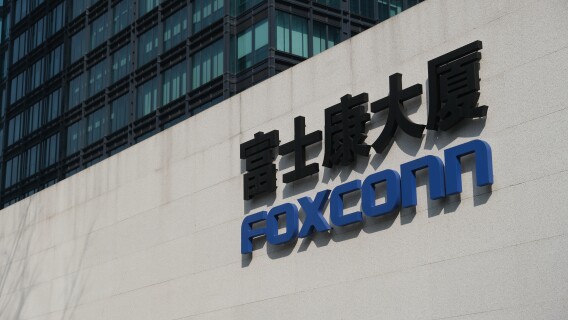As geopolitical tensions rise and supply chains get more complicated, it is important for investors to weigh the linkages between companies and stocks, such as those between Apple, Taiwan Semiconductor and Foxconn.
Based in Taiwan, but centered in mainland China, Foxconn Technology also known as Hon Hai Precision Industry (TWSE: 2317 TT), is the world’s largest electronics manufacturer.
Foxconn’s clients and partners are from across the sectors of computers, smartphones, consumer electronics, retail, lodging, automobiles, medicine, and Internet commerce.
Incredibly, Foxconn’s factories manufacture approximately 40% of all consumer electronics sold worldwide.
[text_ad]
This includes assembling Apple’s iPhones as well as such brands as Amazon Kindle, Sony PlayStation, and Microsoft Xbox. The company works with many other multinationals from Dell to Intel, Cisco, and Huawei.
We’ll get to this in a moment, but Apple (AAPL) is by far the firm’s biggest client, providing nearly half of its annual revenue with more than 90% of iPhones assembled by Foxconn.
Foxconn is also increasingly getting into the electric vehicle (EV) industry and expanding into semiconductor components. Last year, Foxconn began construction of its first electric vehicle battery plant in Taiwan and has inked a joint venture with Saudi Arabia’s sovereign wealth fund to manufacture EVs.
My issue with Foxconn has always been its profit margins which are not impressive in the least.
It is making efforts to correct this problem and is teaming up with Nvidia (NDVA) to build “AI factories” for autonomous cars and robotics platforms but it will take some time as these markets are very competitive. Another positive is Foxconn stock trades below book value and about 11 times earnings with a current dividend yield of around 5%. This would be an aggressive stock pick indeed.
My second related concern is the spillover effect of all this on Apple (AAPL) stock.
Bloomberg Intelligence estimates that it would take eight years for Apple to shift even 10% of its production capacity out of China.
On the political risk side of the equation, Foxconn’s stock fell recently after news reports that the company is facing a tax probe in China. An additional twist to the tale is that Foxconn founder Terry Gou is running for president of Taiwan, which China claims as its own territory.
Clearly, Beijing is flexing its muscles to push back on the U.S. restricting China’s access to advanced Western technologies such as semiconductors.
This brings me to Apple’s dependency on Taiwan Semiconductor (TSM), the world’s largest producer of advanced semiconductors, Asia’s most valuable company with a market cap of over $446 billion. 90% of advanced chips used by Apple are made at the sprawling TSMC factory campus in Taiwan.
China has been brandishing its diplomatic and military muscle against Taiwan, a self-governed island that Beijing demands is an “integral part” of its sovereign territory. Chinese President Xi Jinping has pledged to reunite Taiwan with the mainland, by force if necessary. The tensions have raised concerns about the fate of Taiwan Semiconductor.
President Joe Biden’s “onshoring” and “friend-shoring” measures, including billions of dollars in federal subsidies, to increase chip production in the U.S. and its allied countries threaten TSMC’s dominance in the business by increasing competition.
Even as it keeps its most cutting-edge technology in Taiwan, TSMC has been setting up facilities around the world. The chip giant is a major supplier to tech firms including Apple.
Last year, it announced a second chip manufacturing plant in Arizona. The US$40 billion project is scheduled to be fully operational sometime next year.
If you want to invest in this space, you need to understand how to navigate all these emerging issues to protect and grow your portfolio with the right strategy, stocks, and exchange-traded funds (ETFs).
Join the Cabot Explorer and discover how to understand and exploit the risks and investment opportunities at home throughout the world.
[author_ad]

